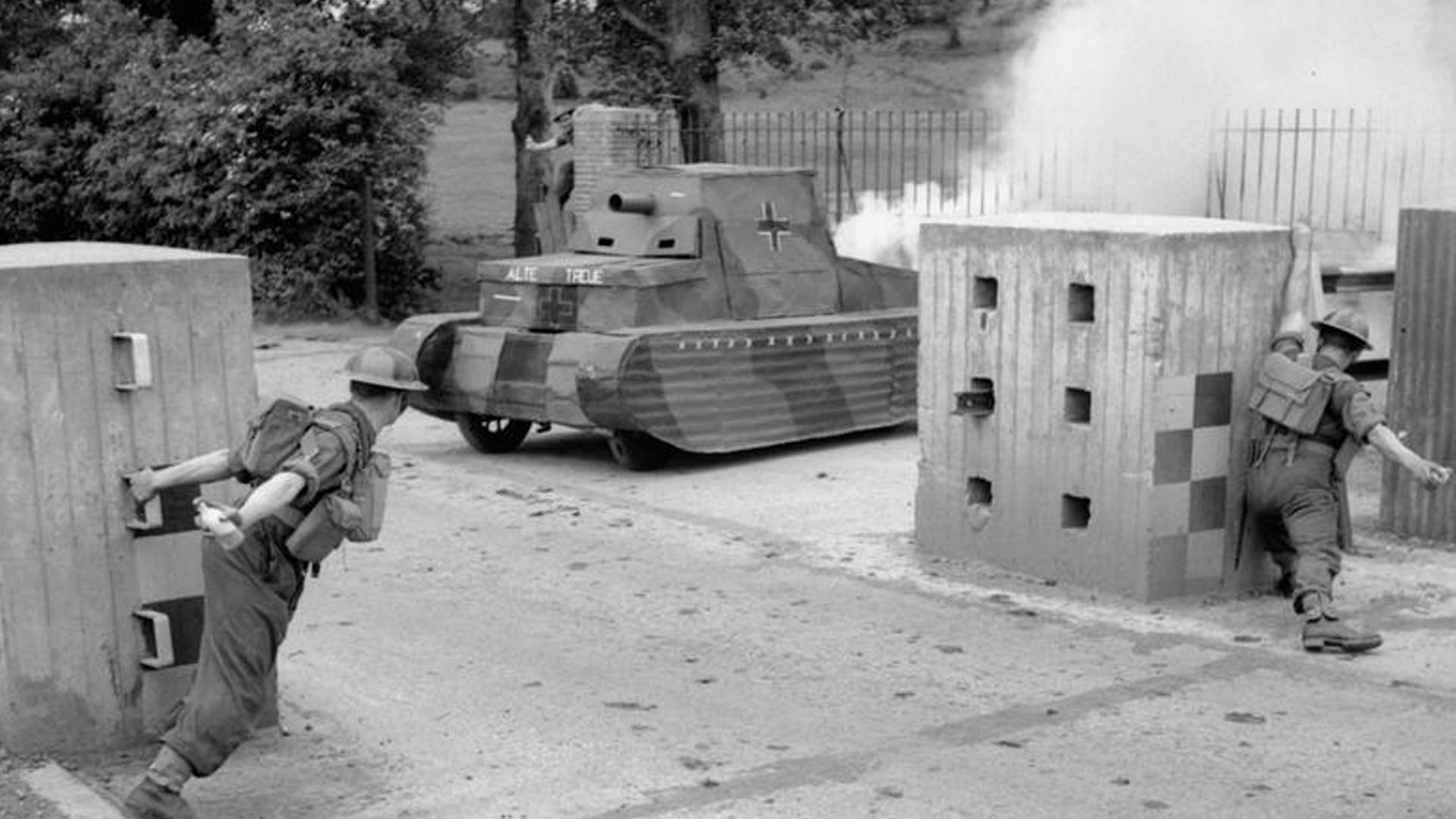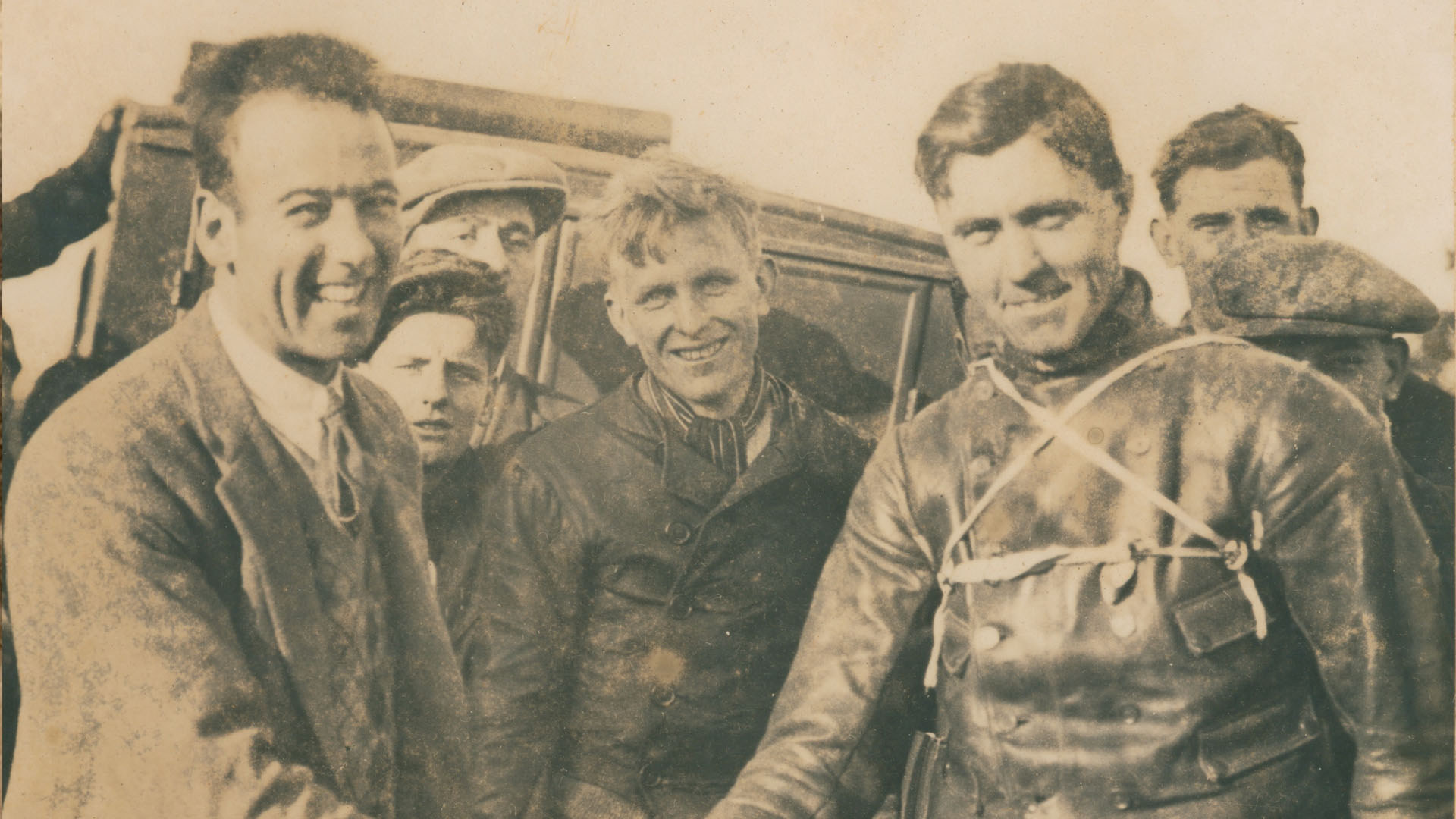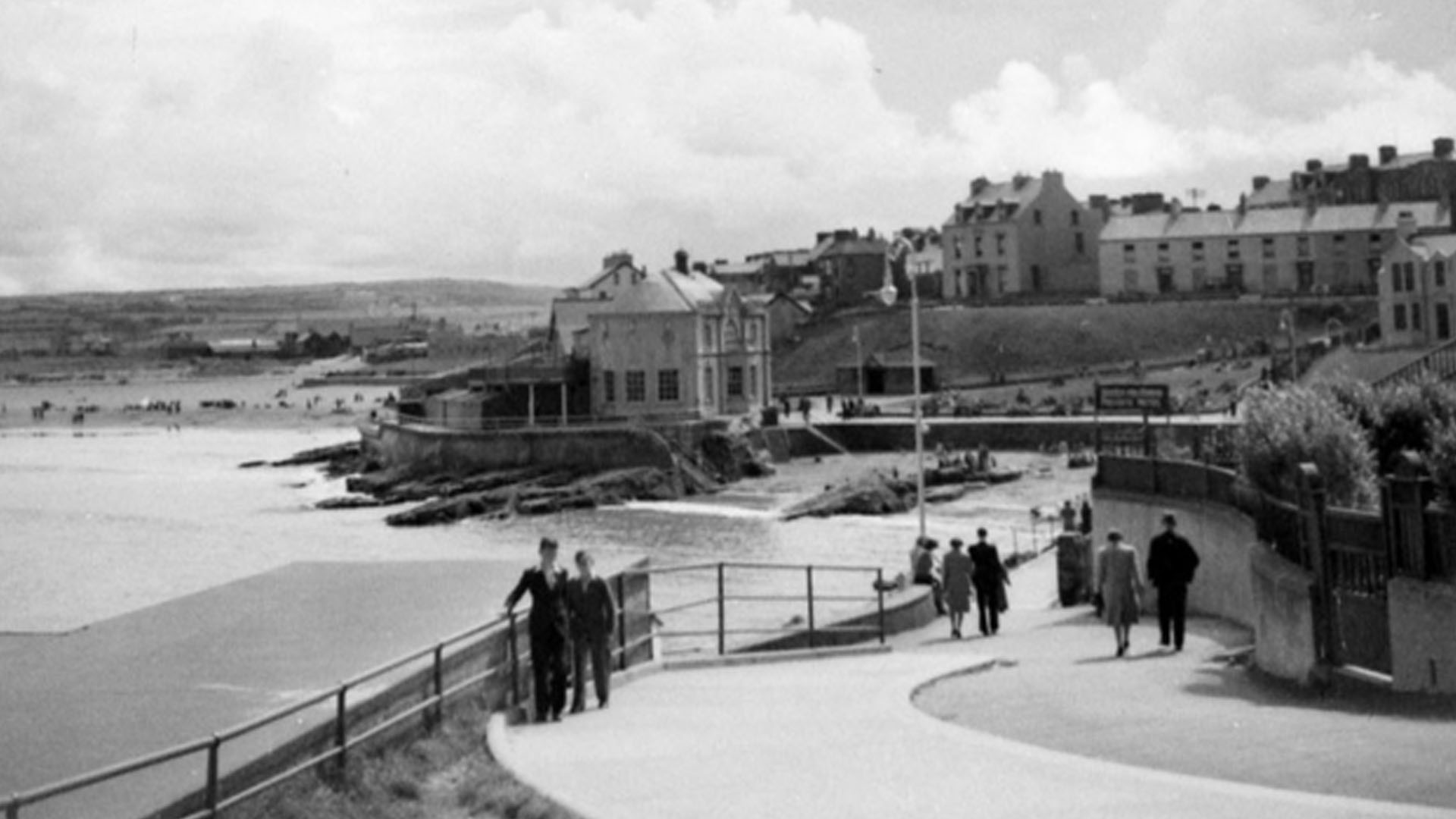The North West 200 is a motorcycle road racing event held every May in Northern Ireland. The current course, known as the triangle, is 8.9 miles and is one of the fastest in the world. Top speeds exceed 200mph with an average of around 120mph. It is the largest annual sporting event in the country, attracting over 150,000 visitors from across the globe.
The race meeting retains its original name although not the original route. The suggested first races were to run over a distance of 200 miles while the North West refers to the proposed location in Co. Londonderry.
The first annual North West 200
The first eleven-mile North West 200 course, in fact, was between Portrush, Portstewart, and Coleraine. The organisers from 1929 were Derry and District Motor Club. By then, racing styles had changed. A race over 100 miles rather than the proposed 200 would be more popular.

Imperial War Museum Photo: H 10858 (Part of the War Office Second World War Official Collection). Men of the 6th Royal Berkshires defend a road barricade against a mock-up 'enemy tank' during realistic battle training at Coleraine in Northern Ireland on 16th June 1941. Copyright Lieutenant Bainbridge - War Office Official Photographer.
The first race took place at 1300hrs on 20th April 1929. The start line at Magherabouy stood close to the chicane on the current course. On one side stood a grandstand, on the other were the pits where riders would refuel over the 200 miles.
Three riders set off first. A McIntyre, RB Patterson, and RM Osbourne led the field. The remaining thirty-one competitors followed at timed intervals. Four riders missed the start. One of them, J McKane from Dervock, collided with a car during the previous day’s practice session.
With six competitors from Eire, both the Union Flag and Irish Tricolour flew at the first races. Having battled through haze and smoke from a gorse fire at Blackhill, the eventual winner was WJ McCracken. His 348cc Velocette completed the 200 mile challenge in 3 hours, 8 minutes, and 35 seconds.
Pre-war racing on the north coast
The years preceding the Second World War saw many changes to the North West 200. The start and finish line moved in 1930 from Magherabuoy to Portmore Road, Portstewart. In 1934, Jimmy Guthrie set the first lap speed of more than 80mph. This was his first of four consecutive 500cc wins. In the year before the outbreak of war, Ernie Lyons on his Triumph was the only finisher in the 500cc class. Lyons’ brother Alan would chalk up a win in the 250cc class in 1955. Joey Dunlop and brother Robert are the only other brothers to be victorious on the triangle.
Tragedy struck at the 1939 races and this meeting has the distinction of recording the first death on the circuit. Local racer Norman Wainwright from Drumslade was the first of many to lose his life on the triangle. Race wins on the day went to Dennis Parkinson in the 250cc class and Jimmy Little on a 350cc.
Ernie Lyons’ machines took advantage of much of the technology of the time. He worked with Fred Clarke of the Triumph factory modifying Triumph Tiger 100s. The race bikes used lightweight aluminium from the Triumph stationary engine. In wartime, such components were found in Halifax Bombers.
Fuel and rubber shortages
After the war, racing at the North West 200 resumed in 1947. With fuel and rubber for tyres in short supply, Artie Bell won the 500cc race. Peter Gill and Malcolm Templeton took victories in the 250cc and 350cc classes respectively. Racing was again suspended in 1948 due to fuel and rubber shortages, but Bell would return victorious in 1949 and 1950. This was his first International win on the Featherbed Norton. 1949 saw Harold Kirby win the 250cc class and Harold Daniell take first place in the 350cc.
Coleraine and District Motor Club first ran the event in 1964 and continue to do so today. The modern races are one of Ireland’s largest sporting events. There have been many changes to the circuit and regulations in the event’s history. 1971 saw the last run on the original circuit, which took in Portstewart promenade. The start and finish line also moved to its current location between Juniper Hill and Millbank Avenue.
Racing at the NW200 today
As well as the Second World War, other events have seen a suspension of racing. Civil unrest in 1972 meant no event took place. The 2001 race succumbed to the Foot and Mouth Disease crisis.
The 50th anniversary in 1979 saw Joey Dunlop pick up his first win at the meeting. Most remember the day as the darkest in the sporting event’s history. Three riders – Tom Herron, Brian Hamilton, and Frank Kennedy – lost their lives on the street circuit.
Philip McCallen’s five wins in a day remain a target for today’s competitors. Fellow Northern Irish man Alistair Seeley holds the record for the total number of wins with seventeen going into 2017.
While visiting the area, be sure to look out for war memorials, pillboxes, abandoned gun ranges and other reminders of the rich history in the area dating back to times when no racing took place.


